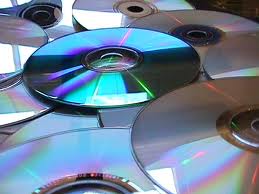Compact discs have been available to the public since 1982 when they were first commercially released, and in 1988 the Taiyo Yuden CD-R became the first recordable CD to hit the market, thanks to the invention of a special dye that enabled CD-Rs to be compatible with players.
Now that over twenty years have passed, consumers have various optical media to choose from with much larger sizes than the CD’s 720 MB capacity. Here are eight reasons, however, why people still love to use recordable CDs instead of DVD or Blu-ray.
1. Cost
When compared to other storage media, CDs are the least expensive way to go. A premium Taiyo Yuden CD-R goes for as low as 22 cents and other brands cost even less. While a CD’s storage capacity is not enough for large-scale backup and file sharing purposes, they are great for other needs, such as storing documents and single music albums. CD-ROM drives are also still available in some stores for only $10, though most new computers use DVD drives instead.
2. Speed
No other optical disc medium can match the write speed of a CD-R. The fastest Blu-ray BD-R writes at 12x, while DVDs write at double this amount. Neither of these compare to the 52x speed of a CD-R, however, making it the best choice for burning a large number of discs quickly.
3. Compatibility
Since the CD is the oldest kind of optical disc used today, they are extremely compatible with all kinds of hardware. DVD and Blu-ray players, for example, both offer backwards compatibility that enables them to play most CDs. This is especially important when considering using Archival grade discs for long-term storage, as CDs are more likely to be readable 100 years in the future due to the format’s simplicity.
4. Size
Recordable CDs also come in different sizes that allow them to become much more portable than a DVD or Blu-ray disc. Pocket CDs, for instance, can be inserted into clear plastic the size of a business card, and some job hunters use these as a “digital resume” to hand to prospective employers.
5. Risk
While disposable technology is not exactly great for the environment, consumers do enjoy the convenience of having a cheap product that can be easily replaced if damaged. Recordable CDs are great for environments where optical discs can become easily destroyed because multiple copies can be made quickly and cheaply.
6. Cars
Even though many new car stereos offer Smart Phone and USB compatibility, most users still have equipment that can only play CDs because they tend to upgrade these systems less often. Using CD-Rs to burn music mixes for long road trips is a better alternative than listening to radio stations that constantly play the same songs.
7. Music
Lastly, the music industry still uses CDs instead of DVD or Blu-ray to distribute music because they can be mass-produced with ease. Also, the CD is tailor-made for music artists because a full album is meant to fit on a single disc. Even though producers are slowly changing the way they distribute albums by releasing singles through iTunes and other MP3 sites, artists who want to distribute their music at live shows still choose the CD.
Brandi Tolleson is a media guru living in the Los Angeles area.




